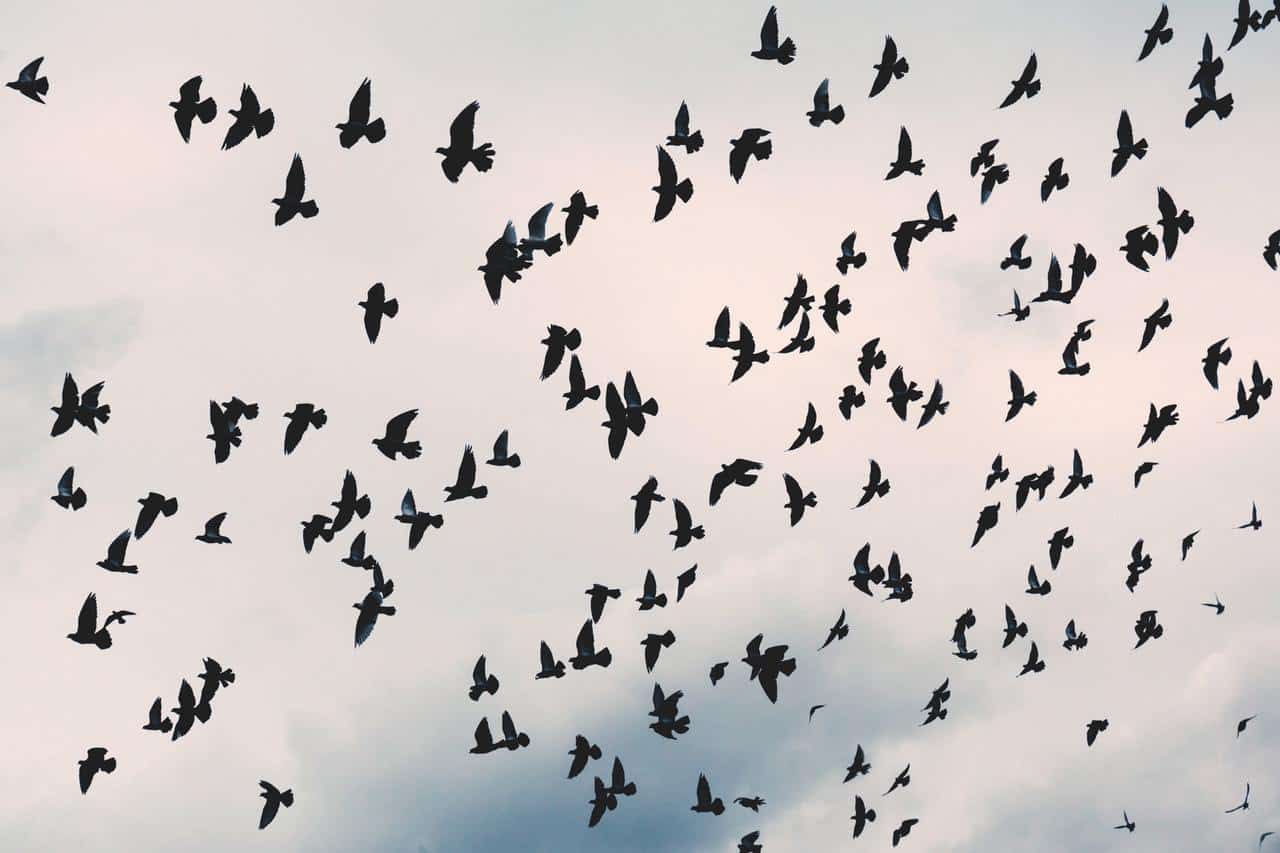Memoir by James Ross Kelly
The old man’s house was falling down ten years after his death; twenty-years after, the whole south face of Lyman Mountain and Ernie’s place by the Rogue River, was divided up and there were expensive homes built at various river viewpoints and no notion of Ernest Lyman, who had lived there for almost a century—was in anyone’s mind. However, one year after he’d passed, on a hot August, dusk evening that was beginning to cool, I waited for the red glow down river and Vaux’s swifts darted through warm air and willows along the river. Swifts in the red day glow off in the west and evening light.
That evening I could see to my right, the hundred year old black walnut and cherry orchard across the road, and up the hill the road that would take you to Ernie’s hard rock mine, and below the mountain as it turned north, Sam’s Creek was trickling in through the willows upstream from, where I was standing.
Once I had seen a specimen nugget come out of Sam’s Creek, which was as big as your thumb and weighed over an ounce. The nugget had come from a small inner tube dredge, sucking gravel off the bottom of the creek for gold fines that settled after the gravel rattled across a shaker board. The dredger came up with a frogman mask and then showed Jack and I the nugget of that day’s find. Ernie let the guy, Jack’s friend, dredge the creek. The man had tried to offer Ernie half of what gold he dredged. Ernie waved him off, despite living in the old falling down house; he’d invested well and had no need for money.
This evening I’m watching the brick chimney, from Ernie’s house, that juts upward from its tin roof at the bottom of Lyman Mountain. Ernie’s parents built the house when he was two, in 1898— when the mine began to pay. He was born across the road not far from where Ernie let me tear an old apple packing shed down two years before his death. The apple orchard had been gone since shortly after the Second World War. The shed was full of nineteenth and early twentieth century artifacts, a “Coolerator,” with only three bullet holes in it—I took the old upright icebox home and kept food in it on the porch in the winter, and would throw in a block of ice in the summer and it would cool beer for three days, despite the bullet holes. As the packing house deconstructed, behind the siding on the inside wall, written in penciled-in childlike scrawl, a scribe from 100 years ago had written, “Amen, Brother Ben, Shot at a Rooster and hit a hen!”
Later, from a ladder, I sided my house with those old Douglas fir lap boards, which were brown and richly weathered with reds, and gray and gold hues— while my own children, my real wealth, squealed and ran across my own side hill seven miles away.
This years ago evening, the Table Rock Black-tail deer were waiting for the near darkness of after dusk for a drink of river. Now the swifts begin to draw close. For one minute they come together in ever tightening circles, closer and closer together. Then as one— they swirl into a whirling black-funnel-down-cloud fifty feet in height above the house; and they are into-the-chimney—in one second, or two.
If I could take you back there I’d want you to make you fly with the Vaux’s swifts that had been up and down the river feeding on flying insects. You’d come together when they began to draw close. You’d come to the high, rapid twittering, high whistled chipping, and in ever tightening circles, swirling and swirling you’d spin collectively together in a great pinwheel-like circle. A gyre coming more and more altogether directly above the chimney—then suddenly, in one morphic resonant being with them you’d come down and into a whirling black-funnel-down tornado-like cloud; fifty feet in height, above the house and then into-the-chimney, full of this day’s hatch settling and chittering for a brick gripped sleep. When you came back I’d tell you a lot of things are like that.
The old man said the little birds used the chimney every summer as long as he could remember. Yet this was the last time I saw this. An hour before, casting and mending my line that evening, I had taken a ten pound hen summer steelhead in the riffle above the falls; on wet fly, a Teeter’s weighted-woolly-worm. Ernie had told me ten years before— it was an evening riffle.
James Ross Kelly lives in Northern California. He has been a journalist for Gannet, a travel book editor, and had a score of labor jobs — the in-between, jobs you get from being an English major. Most recently, he retired as a writer-editor for the Forest Service, where he spent the better part of the last decade in Alaska. He started writing poetry in college, and after college continued and gave occasional readings in the Pacific Northwest during the 1980s. His poems have appeared in Westwind Review, Open Sky, Siskiyou Journal, Don’t Read This, Table Rock Sentinel, and other journals and anthologies.
